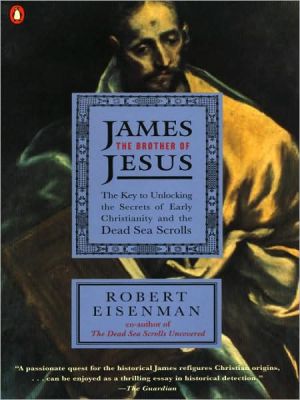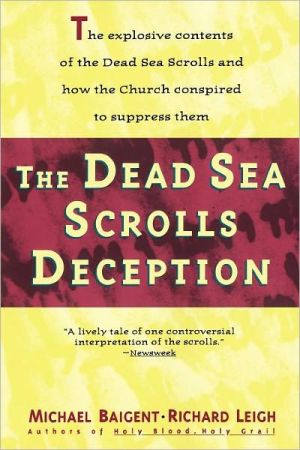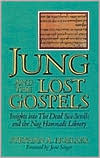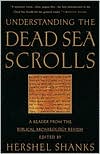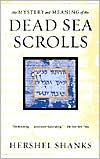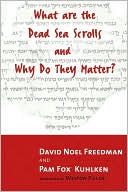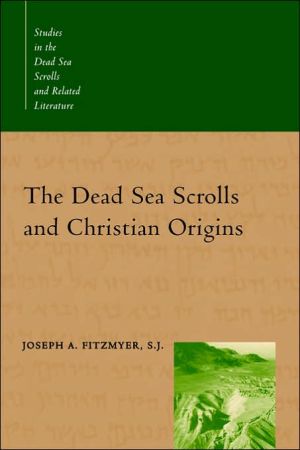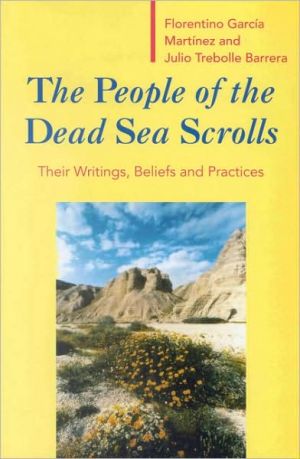James the Brother of Jesus : The Key to Unlocking the Secrets of Early Christianity and the Dead Sea Scrolls
James was a vegetarian, wore only linen clothing, bathed daily at dawn in cold water, and was a life-long Nazirite. In this profound and provocative work of scholarly detection, eminent biblical scholar Robert Eisenman introduces a startling theory about the identity of James—the brother of Jesus, who was almost entirely marginalized in the New Testament.\ Drawing on long-overlooked early Church texts and the Dead Sea Scrolls, Eisenman reveals in this groundbreaking exploration that James,...
Search in google:
This is the first in renowned biblical scholar Robert Eisenman's projected two-volume examination of early Christianity. Eisenman here sets out a fascinating and controversial theory that puts St. James at the center of the story as the heir to Jesus' teachings. Library Journal In previous writings (most recently, The Dead Sea Scrolls Uncovered, LJ 2/1/93), Eisenman drew attention to apparent parallels between the Qumran community reflected in the scrolls and the early Jewish Christian community led by James, the brother of Jesus. In his latest work, he attempts to examine further those parallels and to rescue James from "the scrapheap of history." Eisenman believes James's role in early Christianity has been downplayed in the tradition(s) preserved in the New Testament, primarily the Gospels and Acts. Vestiges of the real James are blurred. Eisenman, therefore, chooses to place more confidence in extra-biblical writings, especially the Dead Sea Scrolls, for understanding James and his role in early Christianity; he takes every opportunity to deprecate the writings of the New Testament (except where they can be pressed into service to strengthen his case). At times it is difficult to determine whether the author's goal is to reclaim James or defame the New Testament. This piece of tendentious research is not the key to unlocking anything about early Christianity.-Craig W. Beard, Univ. of Alabama Lib., Birmingham
IllustrationsAcknowledgementsIntroduction1James32The Second Temple and the Rise of the Maccabees133Romans, Herodians, and Jewish Sects314First-Century Sources Mentioning James515Early Church Sources and the Dead Sea Scrolls706The First Appearance of James in Acts937The Picture of James in Paul's Letters1268James' Succession and the Election to Fill Judas Iscariot's Office1549The Election of James in Early Church Tradition18510James' Rechabitism and Naziritism21711James' Vegetarianism, Abstention from Blood, and Consuming No Wine25812James' Bathing and Clothing Habits31013James as Opposition High Priest and Oblias35314The Stoning of James and the Stoning of Stephen41115The Death of James in its Historical Setting46616The Attack by Paul on James and the Attack on Stephen52117The Truth About the Death of James55318Peter's Visit to Cornelius and Simon's Visit to Agrippa59819The Apostleship of James, Cephas, and John64720James the First to See Jesus68921Last Supper Scenarios, the Emmaus Road, and the Cup of the Lord72522Jesus' Brothers as Apostles77023Simeon bar Cleophas and Simon the Zealot81724Judas the Brother of James and the Conversion of King Agbar85325The Conversion of Queen Helen and the Ethiopian Queen's Eunuch88326Judas Thomas and Theuda the Brother of the Just One923Epilogue959Chronological Charts964Genealogies967Maps970Note on Translations977List of Abbreviations980Notes983Index1037
\ Library JournalIn previous writings (most recently, The Dead Sea Scrolls Uncovered, LJ 2/1/93), Eisenman drew attention to apparent parallels between the Qumran community reflected in the scrolls and the early Jewish Christian community led by James, the brother of Jesus. In his latest work, he attempts to examine further those parallels and to rescue James from "the scrapheap of history." Eisenman believes James's role in early Christianity has been downplayed in the tradition(s) preserved in the New Testament, primarily the Gospels and Acts. Vestiges of the real James are blurred. Eisenman, therefore, chooses to place more confidence in extra-biblical writings, especially the Dead Sea Scrolls, for understanding James and his role in early Christianity; he takes every opportunity to deprecate the writings of the New Testament (except where they can be pressed into service to strengthen his case). At times it is difficult to determine whether the author's goal is to reclaim James or defame the New Testament. This piece of tendentious research is not the key to unlocking anything about early Christianity.-Craig W. Beard, Univ. of Alabama Lib., Birmingham\ \
